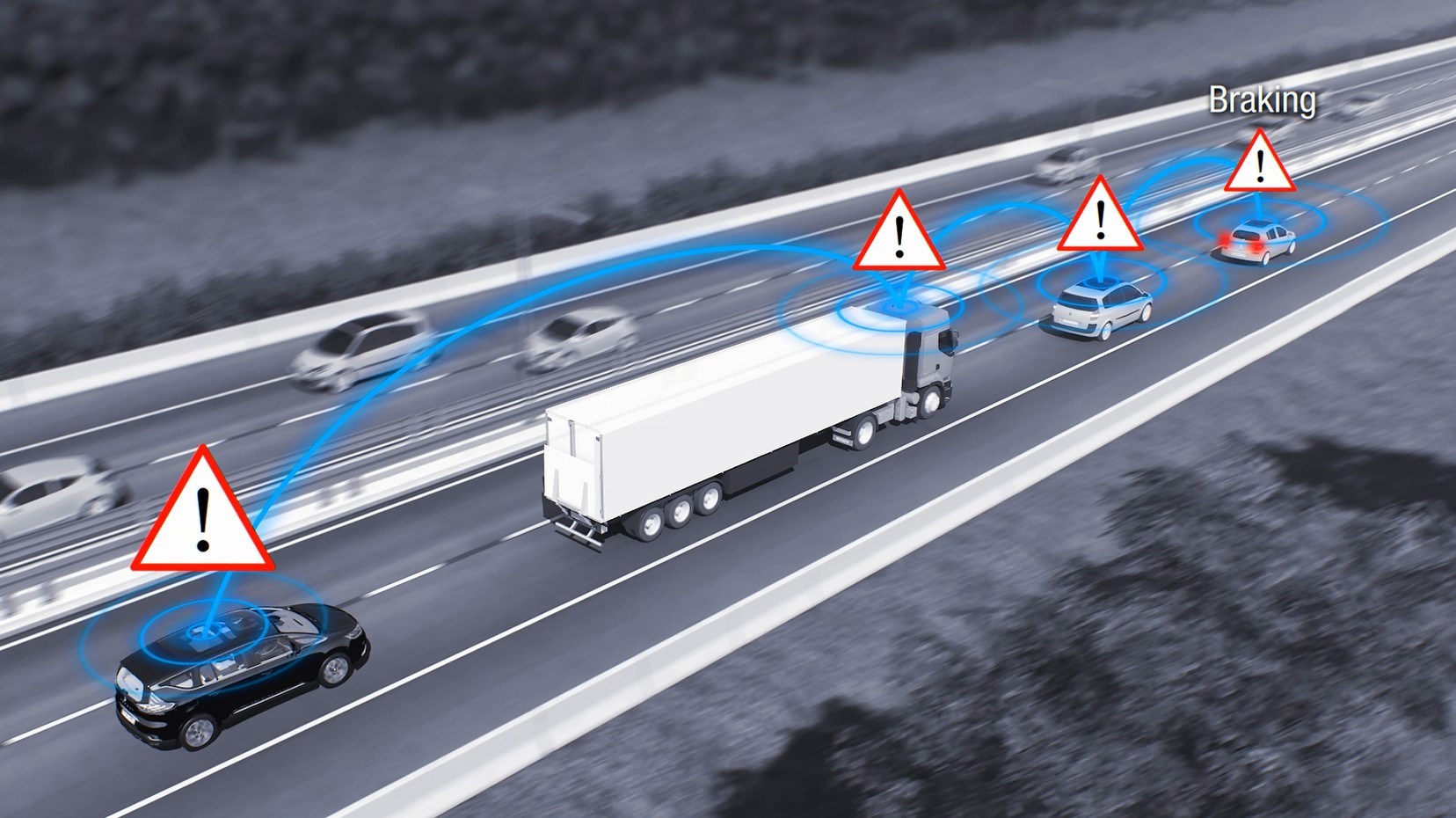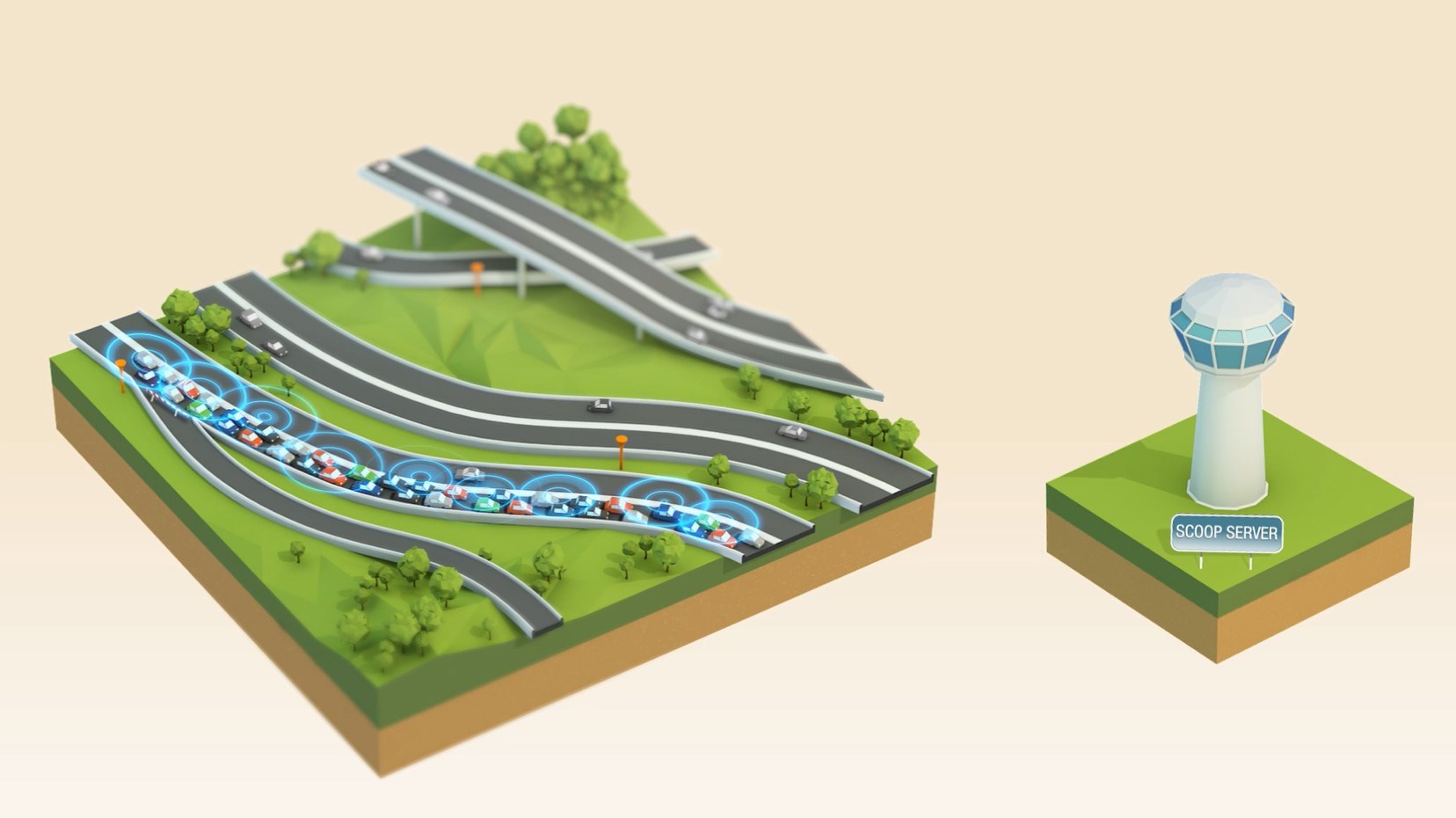
- SCOOP is an EU project that facilitates trials of future vehicle-to-vehicle (V2V) and vehicle-to-infrastructure (V2X) connectivity solutions under real-world driving conditions
- Groupe Renault has produced 1,000 SCOOP-enabled Mégane cars ready now for fleet customers
SCOOP is a pilot project for the deployment of cooperative intelligent transportation systems. This EU project facilitates trials of future vehicle-to-vehicle (V2V) and vehicle-to-infrastructure (V2X) connectivity solutions under real-world driving conditions. It is carried out alongside a range of partners in France, including the French Ministry for the Ecological and Inclusive Transition, regional authorities, infrastructure operators, universities and research centres. Groupe Renault is working with SCOOP to test new technology on its Renault Mégane vehicles and is in the process of recruiting forward-looking fleet partners to be part of this next-generation project.
“Our main goal is to offer our fleet customers cars that are safer on the roads and improve the flow of traffic. These vehicles ‘talk’ to each other and warn each other in real time of any hazards, slow traffic or accidents on the road ahead. Infrastructure firms like French motorway operator SANEF also send information to compatible cars about traffic, roadworks, speed limits, accidents and upcoming hazards,” explains Christine Tissot, Renault SCOOP project manager.
The fleet of SCOOP-enabled Méganes uses technology which will be fitted to tomorrow’s autonomous, connected cars. This includes sensors and computers that gather and analyse vehicle data such as speed, steering wheel angle, possible tyre grip problems in relation to the weather, windscreen wiper operation and deployment of airbags. If a problem is detected, the car’s on-board computer automatically sends a warning message to other SCOOP-enabled vehicles and to units positioned along motorways. These units then notify emergency services if a major incident is detected. In the pre-deployment phase, the units will be installed along 2,000 kilometres of roads in the greater Paris region, along the A4 motorway, in the Isère department in eastern France and on the Bordeaux ring road and in Brittany.
The on-board computer, which issues the warning messages, uses a high-performance wireless communication protocol that harnesses latest-generation ITS G5 technology (Intelligent Transportation Systems), operating on a dedicated frequency (5.9GHz). These systems have been developed for moving objects and offer a range of up to 1,000 metres. The protocol systematically verifies the authenticity of each message and operates quickly in real time to avoid any collisions. It also guarantees that data is processed and held anonymously to protect users’ privacy.
“Groupe Renault is currently in talks with several French companies to include SCOOP-enabled Méganes in their vehicle fleets. In this early phase we are seeking fleet partners who want use the latest connected technology to test new ways of keeping their employees safer on the road. Under the SCOOP project, trialling these fleet vehicles now also means they are part of building a new ecosystem for Europe’s autonomous, connected cars of the future,” said Nadine Leclair, Groupe Renault SVP, Expert Fellow.
The EU’s SCOOP project got under way in 2014 and has now entered an active trial phase thanks to 1,000 Renault Méganes produced at its Palencia facility in Spain.

